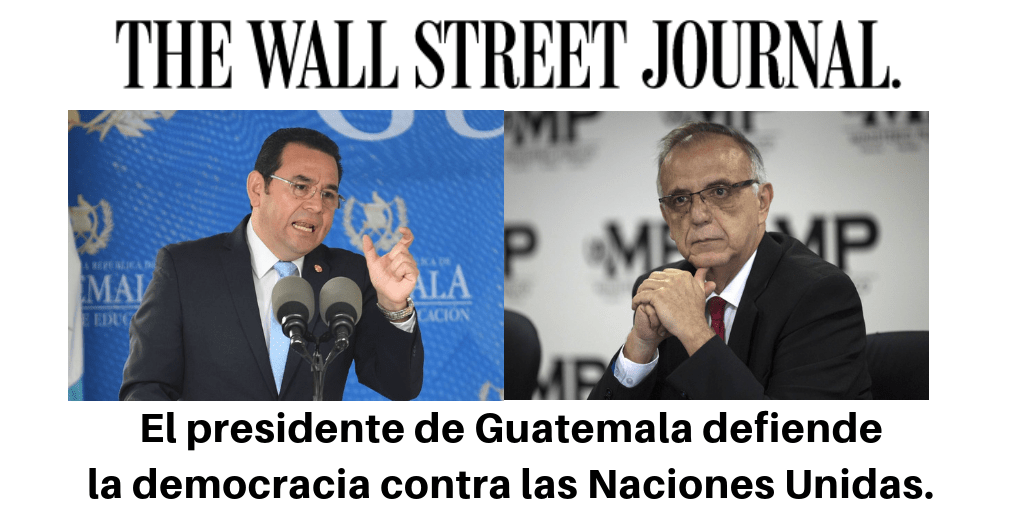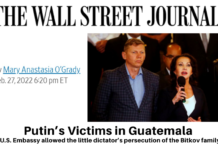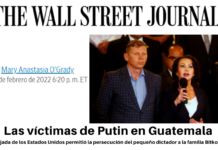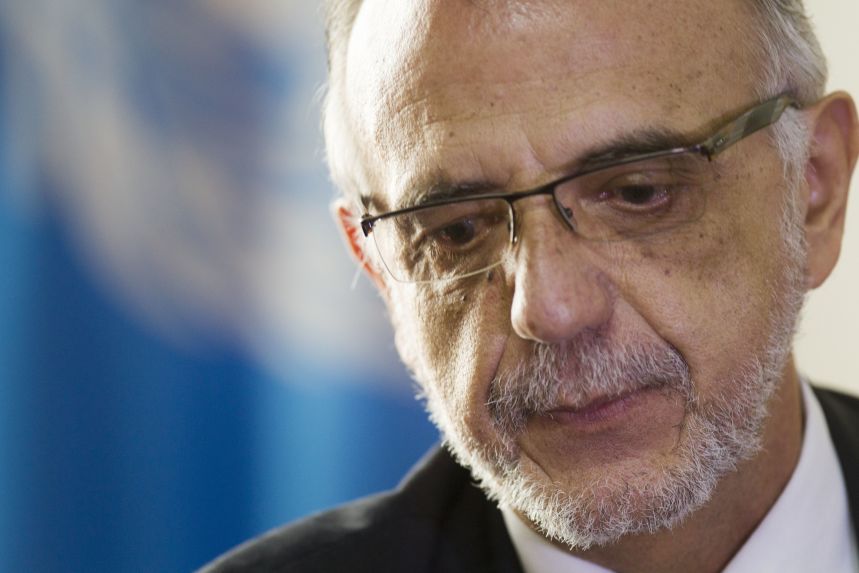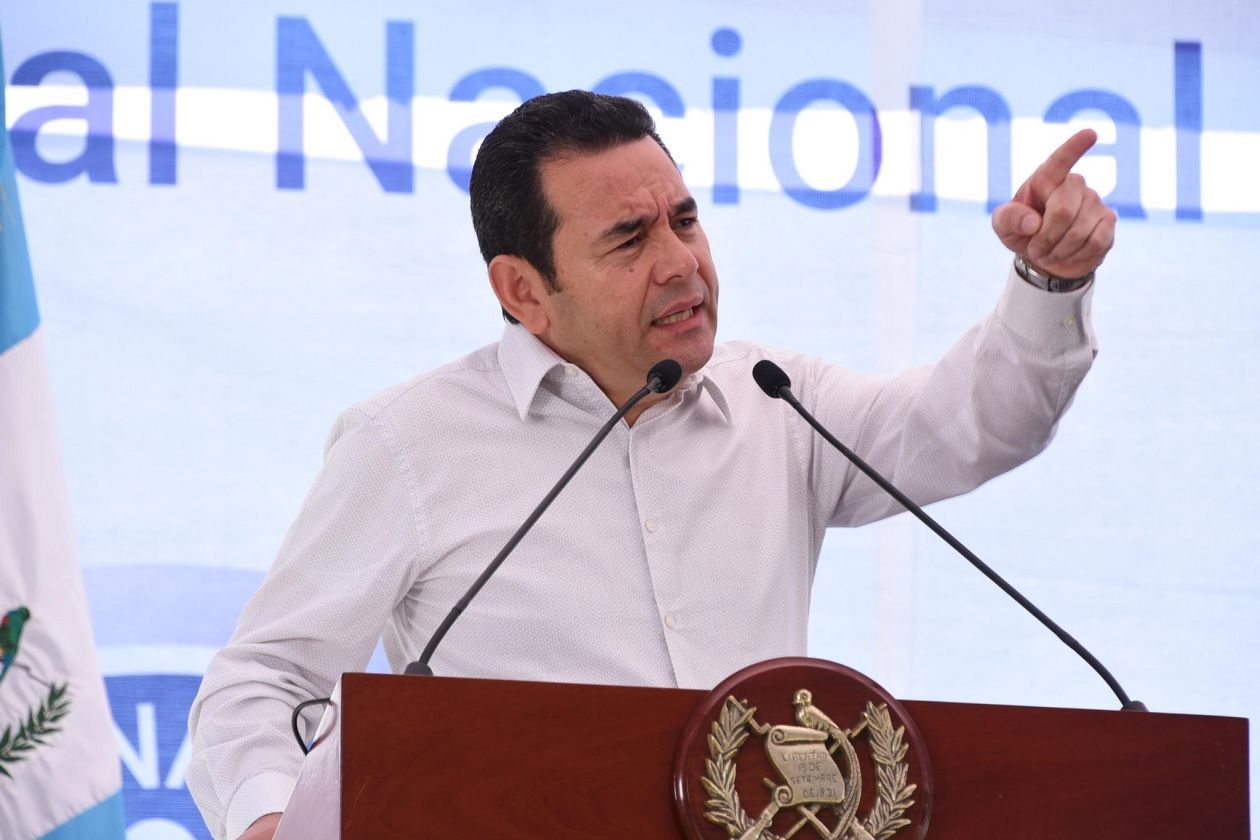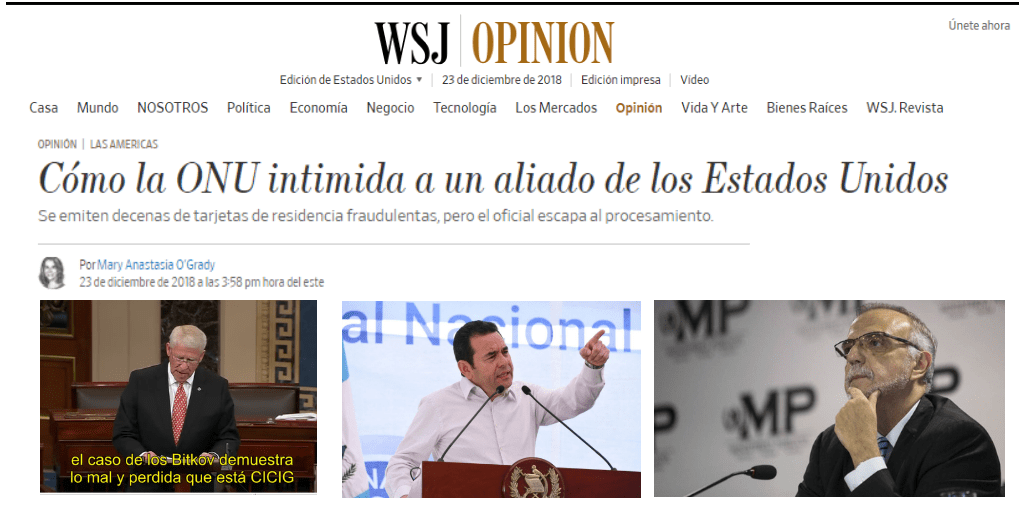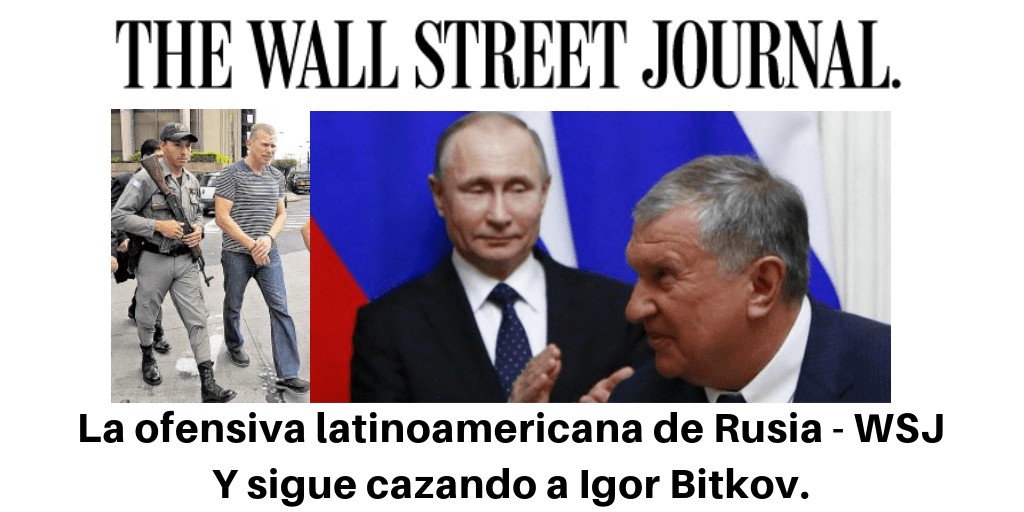He booted the Commission Against Impunity, which has jailed innocents while promoting socialism.

Guatemalan President Jimmy Morales announced Friday that the agreement his country has with the United Nations Commission Against Impunity in Guatemala won’t be renewed. The commission—known by its Spanish acronym, CICIG—has one year to tie up its work and, by Sept. 3, 2019, leave the country.
Mr. Morales sent a letter to the U.N. secretary-general advising him of the decision. In a press conference Mr. Morales said that CICIG should immediately begin transferring its responsibilities to “corresponding [Guatemalan] entities,” mainly the attorney general.
On Monday CICIG’s top prosecutor, Colombian Iván Velásquez, flew to Washington, though he didn’t reveal why and has no public events scheduled. His spokesman said the trip had been planned for a while. It wouldn’t be the first time the prosecutor went north on a secret mission.
The U.S. Congress pays a substantial part of CICIG’s budget, but Mr. Velásquez has refused to answer questions at congressional hearings or in any public forum. Instead he meets behind closed doors on Capitol Hill, where he can control the narrative in front of an audience—both left and right—that is unfamiliar with or doesn’t care about CICIG’s transgressions against innocent Guatemalans. He also seems to have State Department sympathizers.
Mr. Morales’s detractors charge that he fired Mr. Velásquez to protect himself. CICIG has been investigating the president and alleges that he was the beneficiary of illegal campaign financing. He denies wrongdoing and enjoys immunity as long as he holds office. Mr. Velásquez has been working to lift that immunity.
Mr. Velásquez might successfully defend his commission if the standoff with the president were the only disputed issue. But under his leadership there is strong evidence that CICIG routinely flouts the rule of law and tramples civil liberties in violation of the Guatemalan constitution. His methods can’t be supported by a republic that pledges allegiance to transparency and human rights.
CICIG was born in 2006 and began its work in 2007. It was supposed to investigate criminal networks operating inside state institutions under a temporary mandate. U.S. and European Union support gave it enormous clout, and Guatemalans welcomed the idea of outside help to defeat corruption.
But over the years CICIG expanded its authority to advance the politics of the extreme left, which seeks to consolidate power by gaining control of institutions. It’s the same strategy employed by the late Venezuelan dictator Hugo Chávez.
Mr. Velásquez isn’t an elected official. He’s more of a modern-day viceroy, suppressing with force opposition in the “colony” from those who challenge his authority. Guatemalans have come to understand that to complain about the illegal methods of CICIG is to risk public condemnation as a friend of the corrupt—or even investigation and preventive detention. Shady businessmen, politicians, notorious thugs and especially judges seem to be given a pass so long as they embrace Mr. Velásquez’s agenda or stay out of his way. In other words, CICIG’s administration of justice has been selective.
Guatemalans have been afraid to speak out. But that changed when William Browder, a victim of Vladimir Putin’s global vengeance, defended the Bitkov family. The Bitkovs had fled Russia to escape Mr. Putin’s clutches but fell into the snare of human traffickers in Guatemala. Putin henchmen followed the family to Central America and enlisted the help of CICIG to jail them.
In April congressional hearings, Americans learned for the first time about Mr. Velásquez’s extralegal prosecution of the Bitkovs. CICIG had even thrown 3-year-old Vladimir Bitkov into a state orphanage, denying him his right to a legal guardian when his parents were carted off to prison. CICIG declined to send someone appear at the hearing and defend its actions. Perhaps now Guatemala’s attorney general can conduct a full investigation into what looks like collusion between Russia and CICIG.
Another egregious CICIG case is the jailing of Max Quirin, a well-respected Guatemalan businessman who has been denied the presumption of innocence and has been in captivity since May 2015. At his trial, CICIG was unable to present evidence of any crime yet Mr. Quirin has repeatedly has been denied bail or even house arrest.
The international left has cheered the murky influence and capriciousness of CICIG because it strong-arms and silences ideological opponents of socialism. In CICIG, socialists inside and outside the U.N. believed they had found a model they could plop down all over the developing world to weaken advocates of center-right ideas and empower collectivism, all under the pretense of fighting corruption. Rumors abound that the Constitutional Court, an ally of Mr. Velásquez, is getting ready to declare the president’s decision illegal. That would explain why, on Tuesday, Mr. Morales announced that Mr. Velásquez will not be allowed back in the country.
Mr. Morales’s decision to order army jeeps to the street in front of CICIG offices on Friday morning was unnecessary and counterproductive. His critics immediately accused him of intimidation and of militarizing the government. But the decision to expel the commission is his right as the elected leader of a sovereign nation, and he has ample justification.
Ms. O’Grady is the Journal’s Americas columnist.
Guatemala’s president is defending democracy against the U.N., writes @MaryAnastasiaOG https://t.co/hJm6OzaUKa via @WSJOpinion
— MaryAnastasiaO'Grady (@MaryAnastasiaOG) September 4, 2018
Exelente articulo de @WSJ escrito por @MaryAnastasiaOG Presidente de Guatemala @jimmymoralesgt defiende a la democracia contra @ONU_es https://t.co/ZO73mu5AUn
— Irina Bitkova (@Irina_Bitkova) September 5, 2018
Exelente artículo en WSJ . " El presidente de Guatemala protege la democracia contra agencia de ONU que encarcela a los inocentes y realiza su agenda socialista. " https://t.co/b1bPUJQNLL
— Igor Bitkov (@Igor_Bitkov) September 5, 2018
